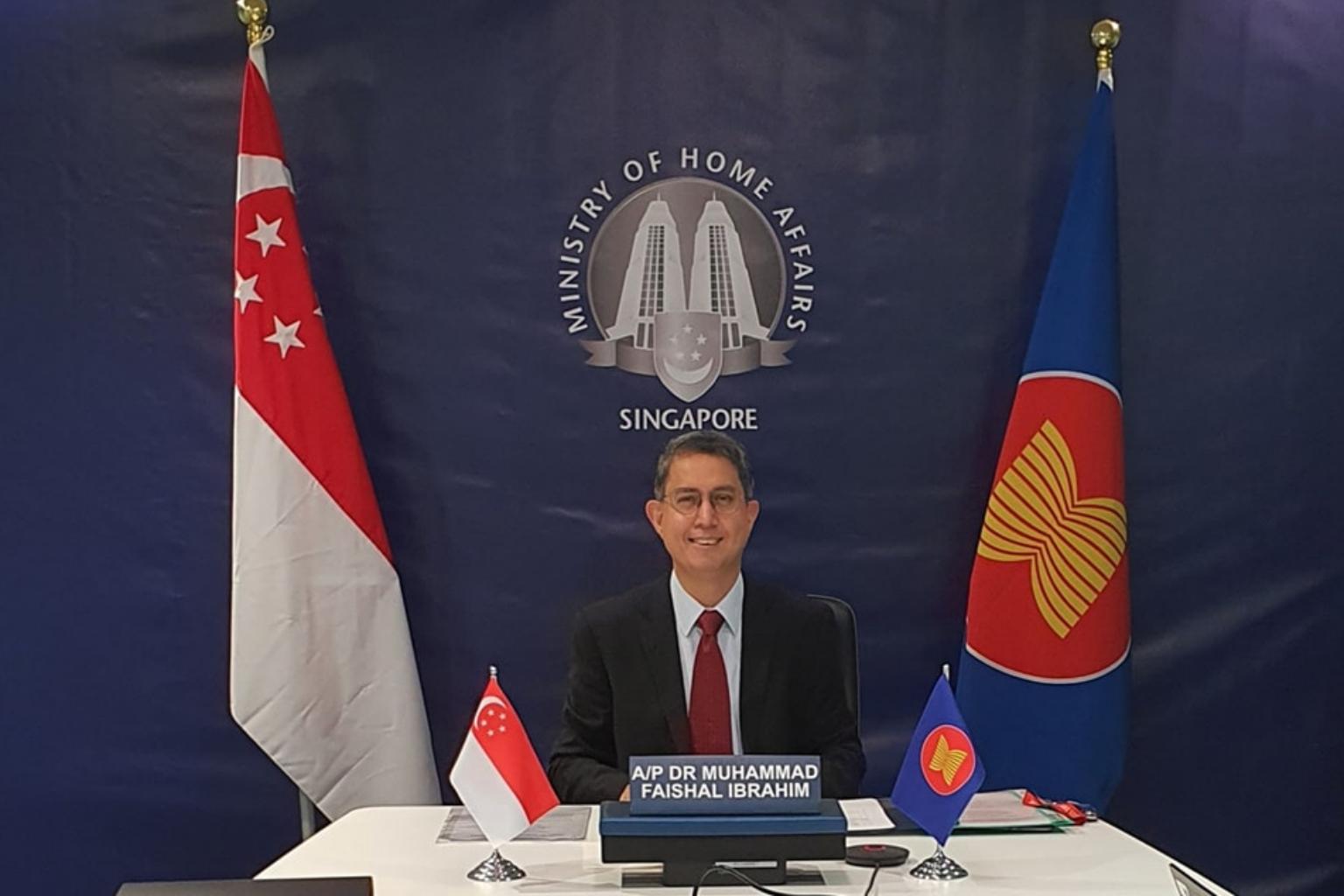Transnational cooperation vital in fighting borderless cyber scams: Faishal Ibrahim
Sign up now: Get ST's newsletters delivered to your inbox

Associate Professor Faishal said tackling the rising rate of cyber crime will require countries to work together.
PHOTO: ASSOC PROF MUHAMMAD FAISHAL IBRAHIM/FACEBOOK
SINGAPORE - While traditional crime is declining, more scams are being reported in Singapore, with about 24,000 cases reported here in 2021, a 53 per cent increase from 2020.
With most carried out online by syndicates that operate across jurisdictions, tackling the rising rate of cyber crime will require countries to work together, said Minister of State for Home Affairs and National Development Muhammad Faishal Ibrahim on Wednesday.
Addressing the 16th Asean Ministerial Meeting on Transnational Crime (AMMTC) Plenary conference via video link, Associate Professor Faishal cited how the Singapore Police Force and the Royal Malaysia Police worked together to arrest 13 people from various regional scam syndicates in July and August.
He said these syndicates had targeted more than 60 victims in Singapore, with losses amounting to more than $1.3 million.
However, the woes for victims do not end when the fraudsters are caught.
He said: "Today, asset recovery efforts are fragmented and there is no effective international framework on asset freezing and recovery that matches the speed with which criminal syndicates move their funds. Swift and seamless cross-border collaboration and cooperation is of paramount importance."
Victims lost more than $633.3 million to scams in 2021, and 2022 is on track to be no better, with a total of $346.5 million lost in just the first half of the year, according to police mid-year statistics released in August.
There were 14,349 scam cases reported in the first half of 2022, almost double the 7,746 cases reported in the same period in 2021.
The AMMTC is an annual meeting of Asean member states, and is the highest policymaking body on Asean cooperation in combating transnational crime.
Prof Faishal also highlighted two other areas of concern - terrorism and illicit drugs in the region.
He said digital platforms have opened up more areas for terrorist groups to communicate with regional supporters, which assist them in boosting operational capabilities in the region.
Moreover, supporters may also turn to self-radicalisation, which Prof Faishal said was a key terrorism threat, noting that Singapore had dealt with 45 individuals over the last seven years who were self-radicalised.
He said Singapore has invested heavily in counter-ideology efforts to prevent radical extremism from taking root here, but regional cooperation and collaboration remain vital in the fight against terrorism.
Illicit drug trafficking also increased during the Covid-19 pandemic.
Prof Faishal said that with the relaxation of border measures, Singapore authorities made drug seizures amounting to an estimated market value of around $18 million in 2021, up by almost 50 per cent from the year before.
In May 2022, Singapore authorities seized nearly 18kg of heroin at a land checkpoint, the largest single haul since 2001.
What was worrying, he added, was that countries in the region were adopting more liberal perspectives on drugs, particularly in relation to cannabis.
He said: "This will send the wrong signal that cannabis is not harmful, despite strong evidence to the contrary, and will lead to increased production, trafficking and abuse of cannabis in the region."


